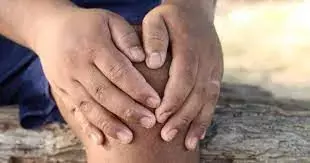- Home
- Medical news & Guidelines
- Anesthesiology
- Cardiology and CTVS
- Critical Care
- Dentistry
- Dermatology
- Diabetes and Endocrinology
- ENT
- Gastroenterology
- Medicine
- Nephrology
- Neurology
- Obstretics-Gynaecology
- Oncology
- Ophthalmology
- Orthopaedics
- Pediatrics-Neonatology
- Psychiatry
- Pulmonology
- Radiology
- Surgery
- Urology
- Laboratory Medicine
- Diet
- Nursing
- Paramedical
- Physiotherapy
- Health news
- Fact Check
- Bone Health Fact Check
- Brain Health Fact Check
- Cancer Related Fact Check
- Child Care Fact Check
- Dental and oral health fact check
- Diabetes and metabolic health fact check
- Diet and Nutrition Fact Check
- Eye and ENT Care Fact Check
- Fitness fact check
- Gut health fact check
- Heart health fact check
- Kidney health fact check
- Medical education fact check
- Men's health fact check
- Respiratory fact check
- Skin and hair care fact check
- Vaccine and Immunization fact check
- Women's health fact check
- AYUSH
- State News
- Andaman and Nicobar Islands
- Andhra Pradesh
- Arunachal Pradesh
- Assam
- Bihar
- Chandigarh
- Chattisgarh
- Dadra and Nagar Haveli
- Daman and Diu
- Delhi
- Goa
- Gujarat
- Haryana
- Himachal Pradesh
- Jammu & Kashmir
- Jharkhand
- Karnataka
- Kerala
- Ladakh
- Lakshadweep
- Madhya Pradesh
- Maharashtra
- Manipur
- Meghalaya
- Mizoram
- Nagaland
- Odisha
- Puducherry
- Punjab
- Rajasthan
- Sikkim
- Tamil Nadu
- Telangana
- Tripura
- Uttar Pradesh
- Uttrakhand
- West Bengal
- Medical Education
- Industry
Slow-to-moderate weight loss via anti-obesity drugs may reduce mortality risk among osteoarthritis patients: Study

Slow-to-moderate weight loss via anti-obesity drugs may reduce mortality risk among osteoarthritis patients suggests a new study published in the Arthritis & Rheumatology.
The current guidelines recommend weight loss for patients with overweight or obesity and knee or hip osteoarthritis (OA); however, there is a paucity of data on the relation of weight loss to death among patients with osteoarthritis. We aimed to examine the relation of the rate of weight loss induced by antiobesity medications over one year to all-cause mortality among patients with overweight or obesity and knee or hip osteoarthritis. Using the IQVIA Medical Research Database, we identified people with overweight or obese and had knee or hip osteoarthritis. We emulated analyses of a hypothetical target trial to assess the effect of slow-to-moderate (2%–10%) or fast (≥10%) weight loss induced by the initiation of antiobesity medications within one year on all-cause mortality and secondary outcomes over five years’ follow-up. Results: Among 6,524 participants, the five-year all-cause mortality rates were 5.3%, 4.0%, and 5.4% for weight gain or stable, slow-to-moderate weight loss, and fast weight loss arms, respectively.
Compared with the weight gain or stable arm, hazard ratios of all-cause mortality were 0.72 for the slow-to-moderate weight loss arm and 0.99 for the fast weight loss arm. We found dose–response protective effects of weight loss on incident hypertension, type 2 diabetes, and venous thromboembolism but a slightly higher risk of cardiovascular disease, albeit not statistically significant, in the fast rate of weight loss arm than in the weight gain or stable arm and no significant relations of weight loss to the risk of cancer. In this population-based study, a slow-to-moderate, but not fast, rate of weight loss induced by antiobesity medications is associated with a lower risk of all-cause mortality in people with overweight or obesity and knee or hip osteoarthritis.
Reference:
Wei, J., Hunter, D., Lane, N.E., Wu, J., Zeng, C., Lei, G. and Zhang, Y. (2023), Weight Loss Induced by Antiobesity Medications and All-Cause Mortality Among Patients With Knee or Hip Osteoarthritis. Arthritis Rheumatol. https://doi.org/10.1002/art.42754
Dr. Shravani Dali has completed her BDS from Pravara institute of medical sciences, loni. Following which she extensively worked in the healthcare sector for 2+ years. She has been actively involved in writing blogs in field of health and wellness. Currently she is pursuing her Masters of public health-health administration from Tata institute of social sciences. She can be contacted at editorial@medicaldialogues.in.
Dr Kamal Kant Kohli-MBBS, DTCD- a chest specialist with more than 30 years of practice and a flair for writing clinical articles, Dr Kamal Kant Kohli joined Medical Dialogues as a Chief Editor of Medical News. Besides writing articles, as an editor, he proofreads and verifies all the medical content published on Medical Dialogues including those coming from journals, studies,medical conferences,guidelines etc. Email: drkohli@medicaldialogues.in. Contact no. 011-43720751


